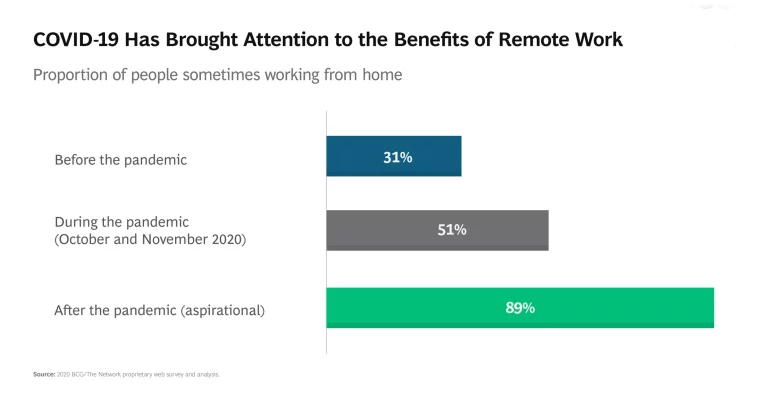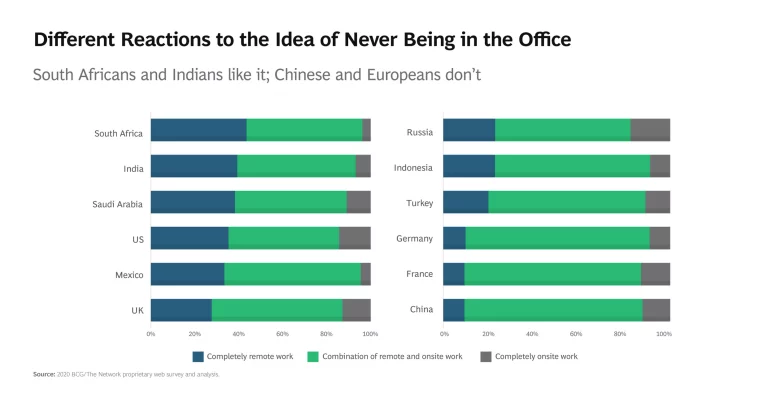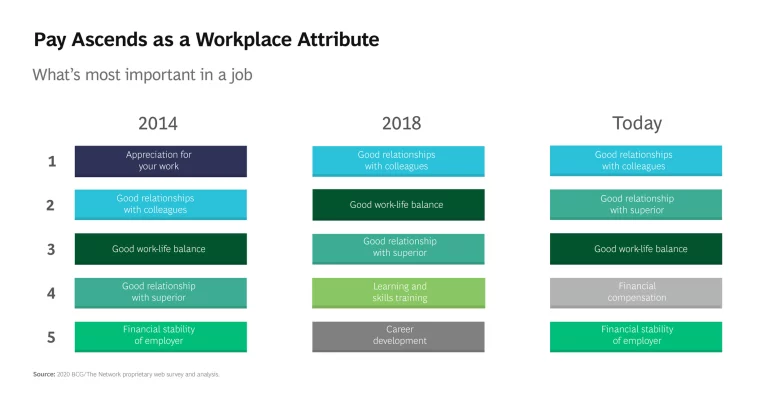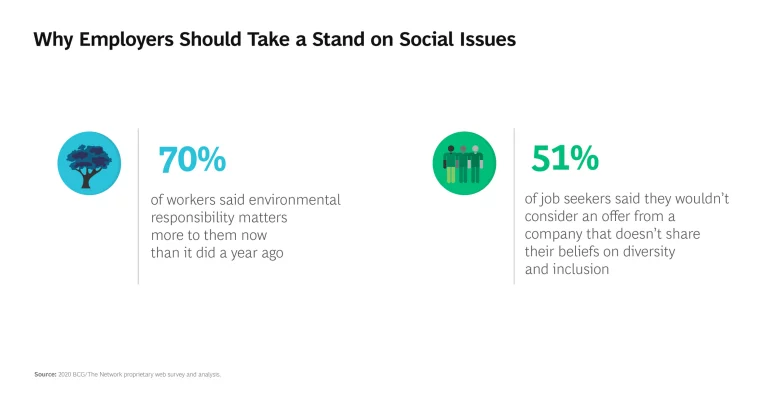The pandemic has taught millions of people around the world that they can do their jobs effectively without ever setting foot in an office. For most of them, that lesson will carry into the future.
Eighty-nine percent of people expect to be able to work from home at least some of the time after the crisis ends. The proportion of people with this expectation is highest—more than 90%—in digital and knowledge-based fields. But it’s common in every industry. Even in job roles like manual labor and manufacturing, an overwhelming majority of people said they expect to be able to do some of their work offsite in the future.
These findings emerge from a survey of almost 209,000 people in 190 countries by Boston Consulting Group and The Network. The results are being presented in a three-part series. This second report follows an initial report that focused on declining levels of worker mobility due to the pandemic. Another report, on the pandemic’s impact on people’s career plans and willingness to retrain, will be released next month.
It is indeed flexibility that most workers are interested in, not a wholesale rejection of the traditional model of full-time physical collocation with colleagues. Only a relatively small proportion of workers—one in four—would switch to a completely remote work model if they could. People in developing countries tend to be above the average in favoring full-time work-from-home models; 44% of South Africans and 39% of Indians said they like the idea. Those in developed countries tend to be less interested, though the US is an exception: 35% of its people said they would gladly work from home on a full-time basis.
Flexibility regarding work location is only one of the attributes that has become more important to workers during the pandemic. Financial compensation is another. This is not a surprise given the economic and existential threats that people have faced in the past year. Financial compensation is especially important to respondents in China, Poland, and Russia and trails only good workplace relationships and a good work-life balance as a global priority. These softer attributes have been constants in all of the studies that BCG and The Network have done since 2014.
Other developments, besides COVID-19, have also changed people’s work expectations. For instance, the Black Lives Matter protests and the #MeToo movement have prompted job seekers to pay more attention to social values in the workplace. And a succession of climate catastrophes, including the Australian bushfires of 2019 and 2020, have spurred some job seekers to question employers’ levels of environmental commitment. Organizations that respond to these concerns will have a huge advantage as the competition for talent picks back up after the pandemic.
Download the full article to understand the expectations surrounding remote work and the imperative for workplaces to become more socially and environmentally aware in 2021 and beyond.










